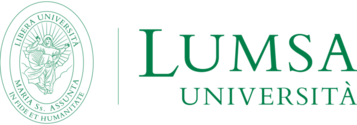Offerta di progetti di dottorato nell’ambito dell’attività NHNAI 4
PhD project offer: Training and education for ethical capacity-building at the interface between society and university
Context of the PhD project
The PhD will be part of a broader project named NHNAI (New Humanism at the time of Neurosciences and Artificial Intelligence). NHNAI is a capacity-building project coordinated by Confluence: Sciences and Humanities Research Center at Lyon Catholic University (UCLy) under the aegis of the International Federation of Catholic Universities (IFCU). Its overall objective is to empower all relevant stakeholders in the arenas of Neuroscience (NS) and Artificial Intelligence (AI) to address the vast array of ethical issues involved in the ongoing developments in these fields. NHNAI draws upon the observation that, although widely invoked in ethical guidelines and principles, the notion of human or humanism (the question what it means to be human, who are we and who should we be at the time of NS and AI) remains a blind spot. Exploring this blind spot is therefore key for ethical orientation at the time of NS and AI. Obviously, such an exploration demands gathering expertise from many different academic disciplines (ranging from computer science to sociology or philosophy). But better understanding what it means to be human (who are we and who should we be as humans at the time of NS and AI) is also a societal question calling for debate in the agora with all concerned stakeholders. Therefore, NHNAI relies on an international network of Catholic universities and communities of stakeholders to conduct collective debates upon these questions with the support of relevant academic insights.
The recruited PhD student will spend one academic year at LUMSA University (Rome).
PhD research topic
The recruited PhD student will contribute to the evaluation and learning dimension of NHNAI project. Rooted in epistemology and educational sciences, the PhD research will study challenges and key factors of success of the process of ethical capacity-building NHNAI project aims at implementing. Reinforcing stakeholders understanding of humanism and capacity to participate to ethical reflection and regulation of these fields notably requires better understanding what it means and takes to combine various disciplinary inputs and mobilize such complex aggregates of knowledge in collective reflection with societal actors. The PhD student will therefore explore the question of the articulation of various forms of rationality and of the insights they allow to provide for the collective ethical reflection, and this along two main dimensions:
- Articulation among academic experts from diverse disciplinary horizon, especially from natural sciences on the one hand and human or social sciences and the humanities on the other hand.
- Articulation among academic forms of rationality and the more common-sense rationality of the agora and the day-to-day life.
It is crucial for NHNAI process of ethical-capacity building to better understand how to articulate these diverse perspectives (pluralism) without undermining (scientific and academic) rationality (without opening the door to relativism).
On the ground of this fundamental reflection in epistemology and educational sciences, the PhD student will thus also seek to identify the key factors of success for ethical capacity-building (how to maximize the quality of collective reflection, how to favor the emergence of collective rationality, …) and to produce recommendations for better training stakeholders engaged in such ethical capacity-building processes as well as new way of measuring their efficiency.
How to apply ?
To apply or for any question, please write to Mathieu Guillermin (nhnai-network@univ-catholyon.fr).
Documents to provide with your application:
- Curriculum vitae
- Motivation letter (explaining why you are interested in the type of capacity-building effort NHNAI project deploys)
- A copy of your master’s degree (or a proof of defense of your master thesis)
- A transcript or score report with your grades for this master degree
- A sample of your work (article, book chapter …) you find representative
- Two letters of recommendation




